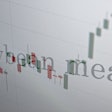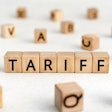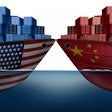The Office of the U.S. Trade Representative (USTR) has issued a notice of action and proposed action as part of its Section 301 investigation into China’s dominance of the maritime, logistics and shipbuilding sectors, raising concerns that higher freight costs could price U.S. goods out of global markets.
According to the April 17, 2025, notice in the Federal Register, beginning Oct. 14, 2025, the USTR will impose a fee of $50 per net ton on Chinese vessel operators and Chinese vessel owners — covering most vessels that carry U.S. agricultural exports. The fee will increase annually, reaching $140 per net ton by 2028.
Operators of Chinese-built vessels will be charged the higher of two calculations: either $18 per net ton for the arriving vessel — rising to $33 in 2028 — or $120 per container discharged, increasing to $250 per container in 2028. Fees will be assessed no more than five times per vessel per year.
In 2024, the United States exported $191 billion in agricultural and related products, including bulk grains, oilseeds, ethanol, soymeal and feed ingredients — more than 70% of which moved by water. Most major U.S. exporters rely heavily on foreign-flagged vessels to move grain, oilseeds and feed globally. Operating on thin margins in highly competitive markets, even modest increases in shipping costs could erode profits and reduce the appeal of U.S. products abroad.
Leading U.S. agricultural groups submitted letters to the USTR supporting the administration’s intent to rebuild domestic maritime strength, but warned that U.S. shipbuilding capacity is years away from meeting demand. They urged the administration to exempt agricultural exports and critical input shipments from the proposed fees.
While the proposal includes limited exemptions, primarily for vessels with individual bulk capacity below 80,000 deadweight tons, it does not explicitly exempt agricultural exports or shipments of crop inputs.
Liquid bulk carriers may fall outside certain provisions, potentially excluding ethanol, biodiesel and fertilizer from some of the fees. Still, industry groups say the lack of clarity is already disrupting trade.
While the agriculture sector supports the administration’s maritime goals, it continues to call for a more measured approach that protects export-dependent industries until domestic shipbuilding capacity can meet demand.
The USTR’s public comment period on the proposal remains open through May 19, 2025.

















